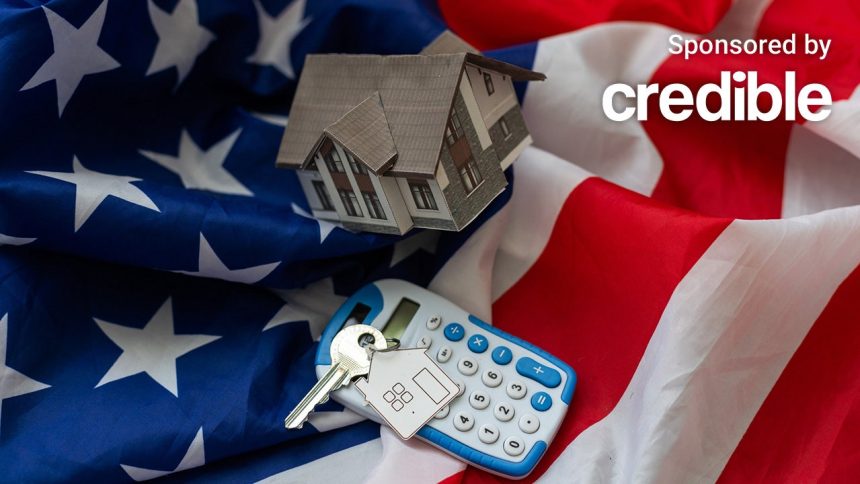The housing affordability crisis is hitting swing states hard. These battleground states, which could potentially be won by either candidate, are especially focused on the issue of affordability in the upcoming election. About nine in 10 adult Gen Zers reported housing affordability is important when deciding who to vote for, Realtor.com found.
Housing payments in swing states have nearly doubled since the last election, rising by 92% to $2,161, on average. Rising home prices and mortgage rates have largely contributed to this jump in ownership costs. The average sales price in swing states increased by about 40% since 2020, and now sits at just over $316,000 in 2024. Mortgage rates have more than doubled to about 7% since the beginning of 2021, when they were 2.65%, on average.
Both red and blue states have faced similar fates, but red states have fared slightly worse, with median housing payments rising by 95%. Blue states saw an increase of 83% in average mortgage payments, according to Realtor.com.
These increases in housing costs have made it impossible for many residents in swing states to afford an average-priced home, based on the general rule that households shouldn’t spend more than 30% of their income on housing costs.
To afford the monthly costs of owning a home in a swing state, the average family income must be $86,421 to stick to the 30% rule. Just four years ago, the income required in these states was just over $45,000. To give some perspective, a household earning the median income in swing states would currently need to spend 32.8% of their income to comfortably afford a home versus the 21.8% they needed to spend back in 2020.
If you’re thinking of shopping around for a home loan, consider using Credible to help you easily compare interest rates from multiple lenders in minutes.
HOUSING BEGINS TO TIP IN FAVOR OF BUYERS; SELLERS SLASH PRICES TO ENTICE THEM BACK TO MARKET: REPORT
Lower-income groups struggle most in swing states
Housing costs have grown unaffordable for many families in swing states, but lower-income households and certain social groups have struggled the most under high home costs. Income growth simply isn’t keeping up with the more rapid growth of housing prices.
“Voters in swing states care about housing affordability because soaring home prices and mortgage rates, along with a shortage of homes for sale, have made homeownership feel impossible for some Americans. That’s especially true for young people who are earning low incomes and haven’t yet built up their savings, making them feel it would be an uphill battle to reach their parents’ level of financial success,” Redfin Senior Economist Elijah de la Campa said.
“While swing states have historically had lower housing costs than blue states — and most still do — markets in swing states have not been immune to the affordability crunch the country has been facing for the last several years. The inability to afford a home is making a lot of voters feel bad about the economy and their financial prospects,” said de la Campa.
Black and Hispanic households, in particular, face difficulties securing affordable housing. The average Black household in a swing state would have to spend 48.2% of their income to afford a typical home while the typical Hispanic family would spend 38.3% of their income. This is up for both of these groups compared to 2020.
Comparatively, white families would need to spend just 29.8% of their monthly earnings on a home to realistically afford it, so they’d be able to slide under the 30% spending mark suggested by experts. This is still up from 19.8% needed in 2020.
If you’re looking to purchase a home, consider visiting Credible to find the best mortgage rate for your financial situation.
THE AVERAGE DOWN PAYMENT FOR THE TYPICAL US HOME REACHES $127,750: ZILLOW
Rate cuts are expected later in the year
Rate cuts are expected in September, on the heels of a cooling inflation report. The Federal Reserve has been waiting on rate cuts until the economy shows more consistent signs of recovery, namely lowering inflation. This hold on rate cuts has led to increasing mortgage rates that have hovered in the 7% range for the better part of a year.
In anticipation of rate cuts, mortgage rates have fallen in recent weeks, landing at 6.78% recently. Although rate cuts would be welcome across the board, experts remain divided on just how much more mortgage rates would drop if the Fed chooses to cut rates in September.
Many believe that rates won’t drop by as much as prospective homebuyers would like. In fact, the first rate cut could have little effect on mortgage rates. Assuming the Fed continues to cut rates throughout the year and into 2025, then buyers could see more downward movement on rates.
Still, buyers have been waiting long enough for rates to drop, that any movement may lead to larger home sales.
Consumers that want to see what kind of loan term and rates would work for them can take advantage of Credible’s free online tools.
MANY HOMES ARE SITTING STAGNANT ON THE MARKET, CAUSING MORE FREQUENT PRICE DROPS
Have a finance-related question, but don’t know who to ask? Email The Credible Money Expert at moneyexpert@credible.com and your question might be answered by Credible in our Money Expert column.
Read the full article here




